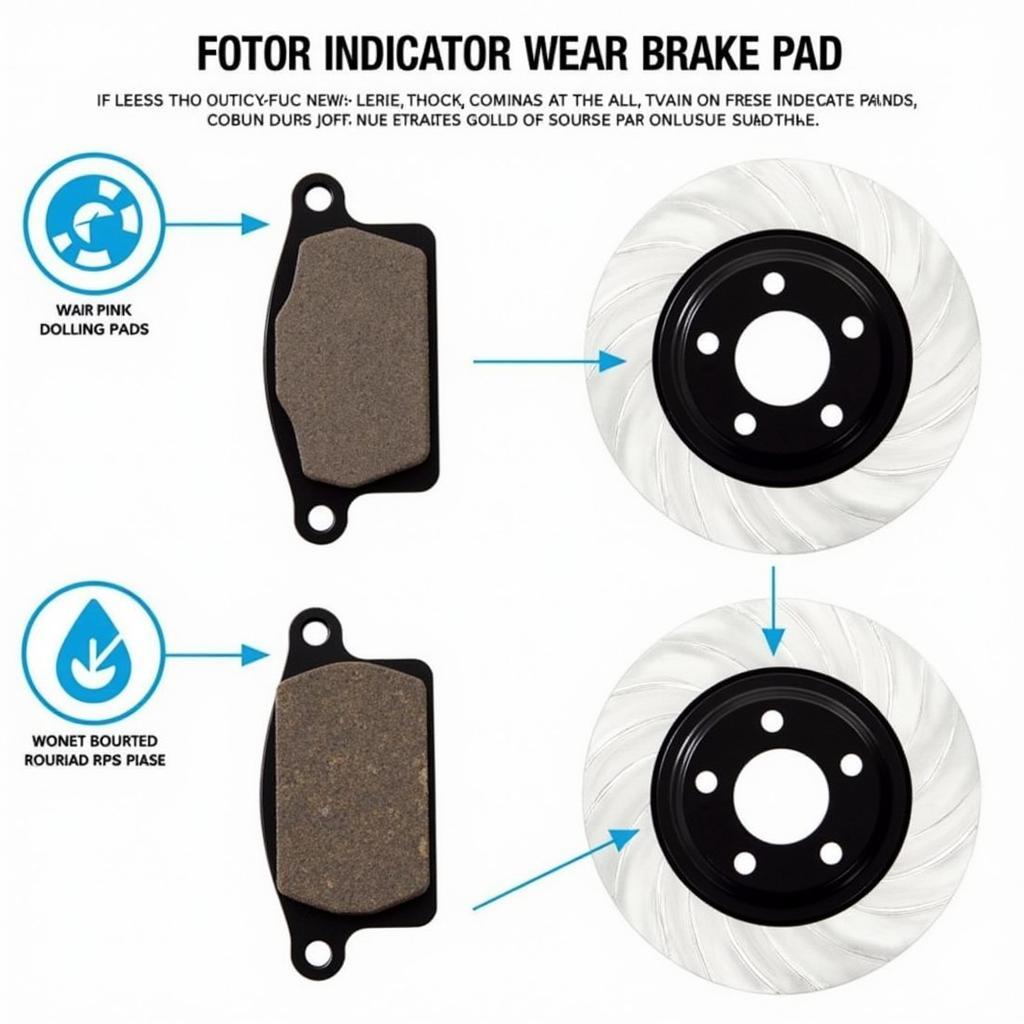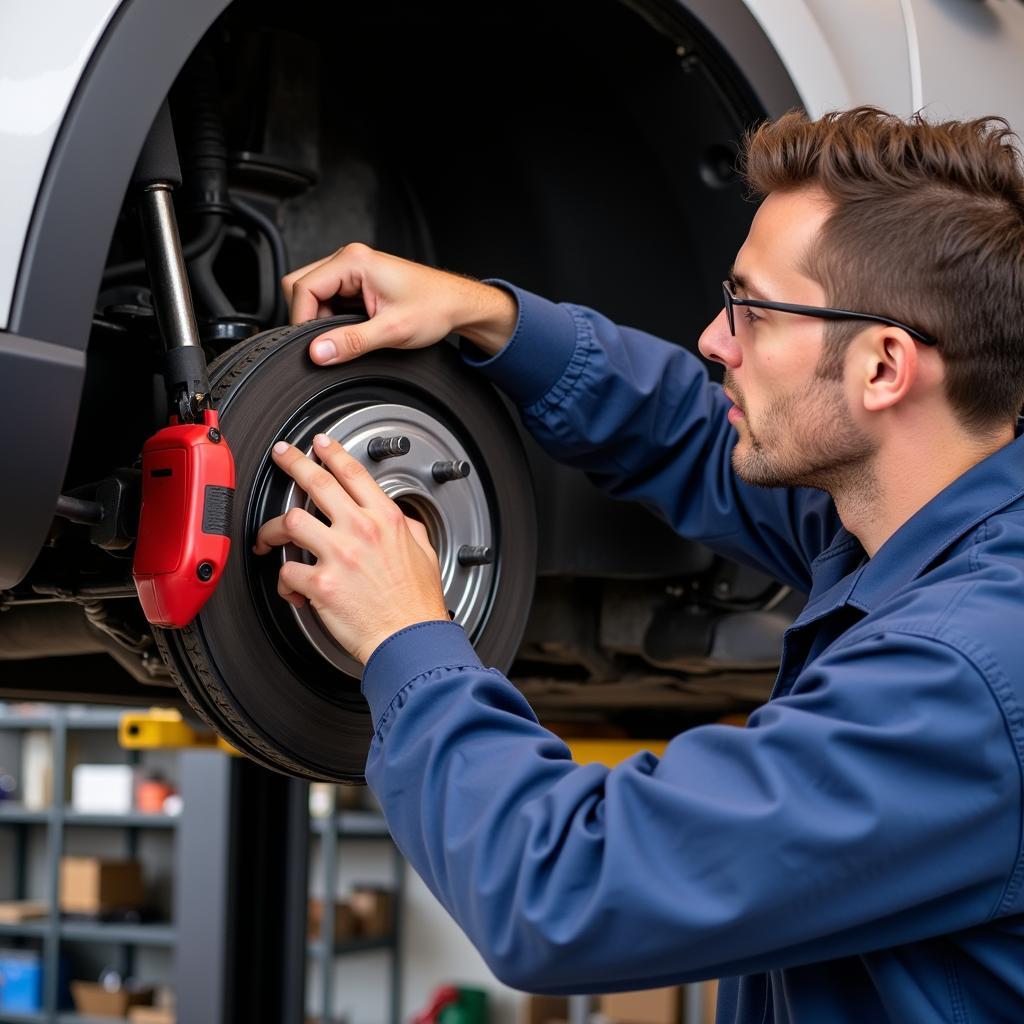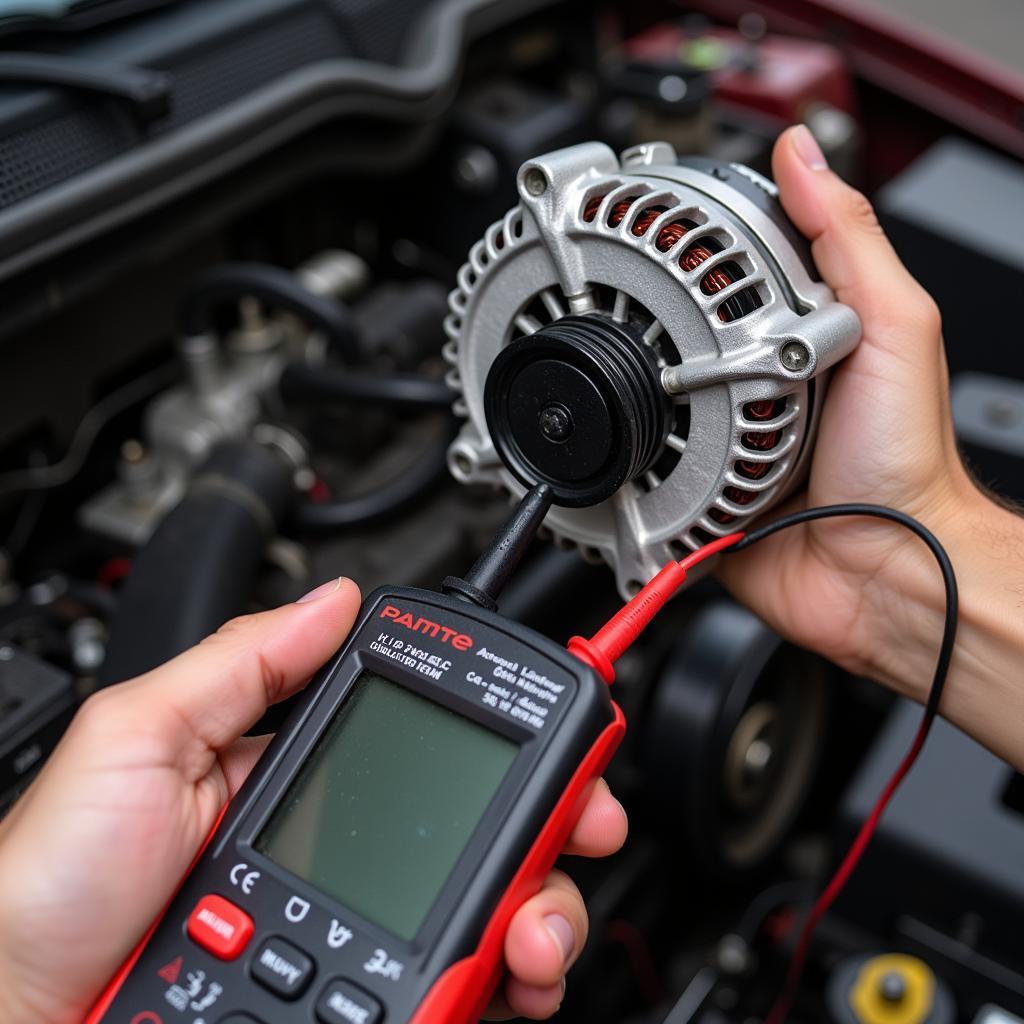Brake warning signs are crucial indicators of potential issues with your vehicle’s braking system. Ignoring these signs can lead to dangerous driving conditions and costly repairs. This guide will help you understand various brake warning signs, their potential causes, and what steps to take when you encounter them. Learn how to maintain your brakes and ensure safe driving.
For drivers, recognizing these signals is paramount for safety. warning signs on a car brakes can manifest in several ways, from unusual noises to physical sensations.
Common Brake Warning Signs
Several indicators can point to problems within your braking system. These range from obvious signs like a lit brake warning light to more subtle clues that require a keen ear or a sensitive foot.
Illuminated Brake Warning Light
Perhaps the most straightforward brake warning sign is the illumination of the brake warning light on your dashboard. This light can indicate low brake fluid, a problem with the anti-lock braking system (ABS), or an issue with the electronic parking brake.
What does a brake warning light indicate? It could mean low brake fluid, ABS problems, or parking brake issues.
Squealing or Grinding Noises
A high-pitched squealing noise often indicates worn brake pads. The squealing is caused by a small metal indicator built into the brake pads designed to make noise when the pads are thin. A grinding noise, however, is a more serious issue, usually signifying metal-on-metal contact, meaning your brake pads are completely worn and are damaging your rotors.
 Brake Pad Wear Indicator Causing Squealing Noise
Brake Pad Wear Indicator Causing Squealing Noise
Soft or Spongy Brake Pedal
If your brake pedal feels soft or spongy, requiring you to press it further than usual to stop, it could indicate air in the brake lines, a leaking brake line, or a failing master cylinder. This reduced responsiveness can significantly increase your stopping distance, posing a serious safety risk.
Pulling to One Side When Braking
If your car pulls to one side when you apply the brakes, it could mean a stuck brake caliper, uneven brake pad wear, or a problem with the brake hoses. This pulling sensation can make it difficult to control your vehicle during braking, especially in emergency situations.
Vibrating Brake Pedal
A pulsating or vibrating brake pedal, especially when braking at higher speeds, can suggest warped brake rotors. Rotors can warp due to excessive heat or wear and tear.
What causes a vibrating brake pedal? Often, it’s warped brake rotors due to excessive heat or wear.
What to Do When You Encounter Brake Warning Signs
If you experience any of these brake warning signs, it’s critical to address the issue immediately.
- Stop driving: If you experience a sudden change in brake performance, pull over safely as soon as possible and avoid driving further.
- Check your brake fluid: If possible, check your brake fluid level. Low fluid can indicate a leak.
- Inspect your brakes: Visually inspect your brakes for any obvious signs of damage, such as leaking fluid or worn pads.
- Seek professional help: If you’re unsure of the cause or the severity of the problem, take your car to a qualified mechanic for a thorough inspection and repair.
- Regular maintenance: Brake pad warning signs are often preventable with routine checks and maintenance.
Don’t delay brake repairs. warning signs you need new brakes should be addressed immediately by a qualified technician.
 Mechanic Inspecting Car Brakes
Mechanic Inspecting Car Brakes
“Regular brake inspections are essential for safety,” says John Smith, a certified automotive technician with over 20 years of experience. “Many brake problems can be prevented with routine maintenance, saving you time and money in the long run.”
Conclusion
Brake warning signs are your car’s way of telling you something is wrong. Ignoring these signs can lead to serious safety risks and costly repairs. By understanding these warning signs and taking prompt action, you can ensure the safety and reliability of your braking system and protect yourself and others on the road. Address any brake warning signs immediately to maintain optimal vehicle safety.
“Addressing brake issues promptly not only keeps your car running smoothly but also prevents potential accidents,” adds Maria Garcia, a senior automotive engineer. “Remember, your brakes are your first line of defense on the road.” Pay attention to kia sportage warning signs brakes and have them inspected immediately by a professional. Addressing brake problems early can prevent further damage and ensure your safety on the road. It’s always better to be safe than sorry when it comes to brake maintenance, especially for larger vehicles like the ones described in warning signs for bad brakes on 2007 frieghtliner m2.

